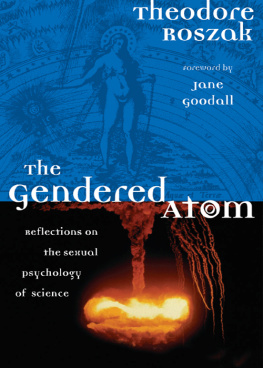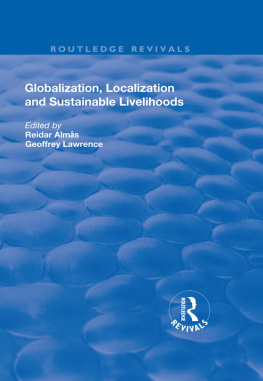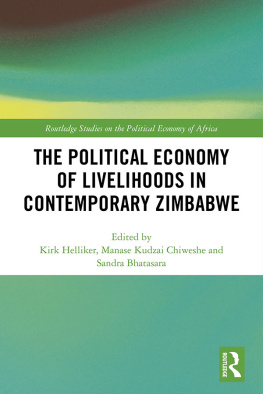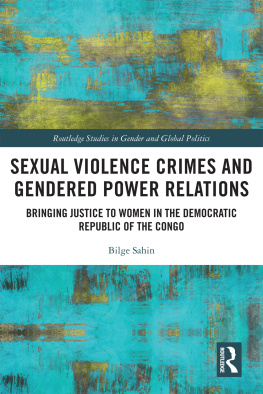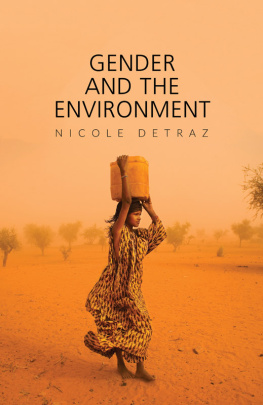
This is an important book that offers a fresh insight into intersectionalityand how it can help explain how social dimensions affect practical situations poor women for women in marginal communities. It uses the case study of cyclone Aila and the Sundabarns in coastal Bangladesh. This is an important book for scholars and practitioners in natural disaster relief and rehabilitation.
Dr Patrick Kilby,Australian National University, and Editor in Chief of Development in Practice
This is an excellent book providing a much-needed scholarly contribution to the debate over indigenous communities and climate induced disasters. The book presents a rich empirical evidence on Munda and Shora indigenous communities from Bangladesh to demonstrate how and why the livelihoods of these rural communities are changing in the face of disasters, how disaster impacts are gendered, especially in the context of indigenous communities, and why it matters to recognise the persistence and change in the views of indigenous women affected by and responding to disasters. The author has done an excellent job to bring out the ethnographic details to explain the construction and alternation of gendered livelihood patterns in disaster affected communities. This is a fresh and important addition to the scholarship of disaster and development studies.
Krishna K. Shrestha,UNSW Sydney, Australia
Biophysical hazards always demand a response, be it through disaster-prevention planning or post-hazard recovery measures. Gender roles and relations matter enormously to how just and effective the responses are. In this fine comparative study, Sajal Roy shows why gender-sensitive policy is an essential - never optional - part of disaster mitigation and post-disaster rebuilding.
Noel Castree,UTS, Australia, and University of Manchester, UK
Climate Change and Gendered Livelihoods in Bangladesh
Globally climate-induced disasters have been impacting marginalised communities lives, livelihoods and gendered relations. This book explores the effects of Cyclone Aila (as a result of climate change) in 2009 on the rural livelihoods and gendered relations of two ethnically distinct forest communities Munda, an indigenous group, and Shora, a Muslim group dwelling near the Sundarbans Forest in Bangladesh.
Examining the cyclones medium- to long-term impacts on livelihoods and comparative aspects of gendered relations between these two contrasting communities, this book addresses a gap in current critical development studies. It adopts an ethnographic research design and analyses the alterations to livelihood activities and reconfiguration of gender relations within the Munda and Shora communities since 2009. The study primarily contends that post-Aila, livelihoods and gendered relations have been substantially transformed in both communities, making the case that the improvement of local infrastructure, as an important part of the geographical location, has noticeably progressed the living conditions and livelihoods of some members of the Munda and Shora communities.
Connecting climate-induced changes with the construction and alteration of gendered livelihood patterns, the book will be of interest to a wide range of academics in the fields of Asian Studies, Sociology of Environment, Social Anthropology, Human Geography, Gender and Cultural Studies, Human Geography, Disaster Management and Forestry and Environmental Science.
Dr Sajal Roy a Postdoctoral Research Fellow at the Centre for Livelihoods and Wellbeing, University of Technology Sydney.
First published 2021
by Routledge
2 Park Square, Milton Park, Abingdon, Oxon OX14 4RN
and by Routledge
52 Vanderbilt Avenue, New York, NY 10017
Routledge is an imprint of the Taylor & Francis Group, an informa business
2021 Sajal Roy
The right of Sajal Roy to be identified as author of this work has been asserted by him in accordance with sections 77 and 78 of the Copyright, Designs and Patents Act 1988.
All rights reserved. No part of this book may be reprinted or reproduced or utilised in any form or by any electronic, mechanical, or other means, now known or hereafter invented, including photocopying and recording, or in any information storage or retrieval system, without permission in writing from the publishers.
Trademark notice: Product or corporate names may be trademarks or registered trademarks, and are used only for identification and explanation without intent to infringe.
British Library Cataloguing-in-Publication Data
A catalogue record for this book is available from the British Library
Library of Congress Cataloging-in-Publication Data
A catalog record has been requested for this book
ISBN: 978-1-032-00302-3 (hbk)
ISBN: 978-1-032-00591-1 (pbk)
ISBN: 978-1-003-17482-0 (ebk)
DOI: 9781003174820
Dr Sajal Roy is an Adjunct Fellow in the Humanitarian and Development Research Initiative (HADRI), Western Sydney University. Dr Roy is trained in critical development studies with proven experience in teaching, researching and consulting in sociology of gender studies, sustainable development, gendered aspects of resilience and empowerment with a focus on the developing economies in the Asia Pacific region. His Ph.D. entitled Extreme Weather, Livelihood and Gendered Relations: Experience of Indigenous and Muslim Forest Communities in Bangladesh examined the intersectional characteristics enhancing gender resilience and the ways in which gendered relations are altered in the face of a climate-induced disaster. He holds an MPhil in Gender and Development Studies from the University of Bergen, Norway and a Masters degree in Women and Gender Studies from the University of Dhaka, Bangladesh. Dr Roy served as a Senior Research Associate at the Research and Evaluation Department (RED) of BRAC Internationals operation in Sub-Saharan African countries i.e., South Sudan, Sierra Leone and Liberia. With Springer Singapore, he authored his first monograph titled Climate Change Impacts on Gender Relations in Bangladesh. Sajals research interests are: society and culture, gender specific studies, feminist political ecology, gender and disaster studies, human security and international development.
Jonathan Gilligan
In this book, Dr Sajal Roy expands on his previous book, Climate Change Impacts on Gender Relations in Bangladesh (Roy 2019) to study the impacts of Cyclone Aila, which struck Bangladesh and India in May 2009, on gender relations over the 10 years following the cyclone in two villages in the coastal Southwestern region of Bangladesh. This book offers important new perspectives on opportunities to empower women and promote sustainable livelihoods in rural communities.
The immediate impacts of Cyclone Aila were devastating. The phenomenal success of Bangladeshs cyclone protection program saved countless lives and the death toll of Aila is estimated to be less than 200, where death tolls over 10,000 were frequent in the years 19601991, with particularly deadly cyclones in 1970 and 1991 that killed over 500,000 and over 100,000, respectively (Haque et al. 2012). However, despite the small loss of life, Aila was economically devastating to Bangladesh: more than 2 million people lost their homes and many of these also lost assets crucial to their livelihoods as 150,000 livestock drowned, salt water contaminated over 300,000 acres of farmland, and storm surges washed away fish ponds and infrastructure (Saha 2017).


